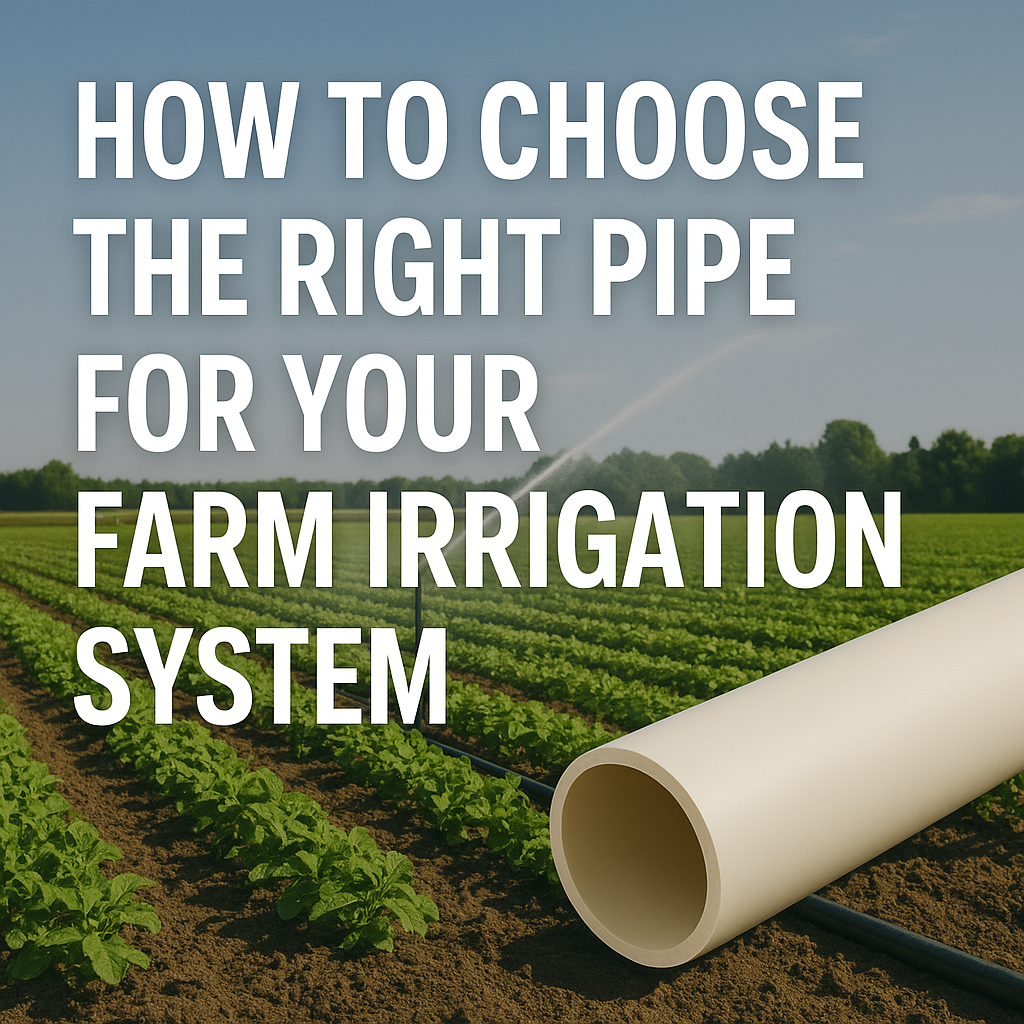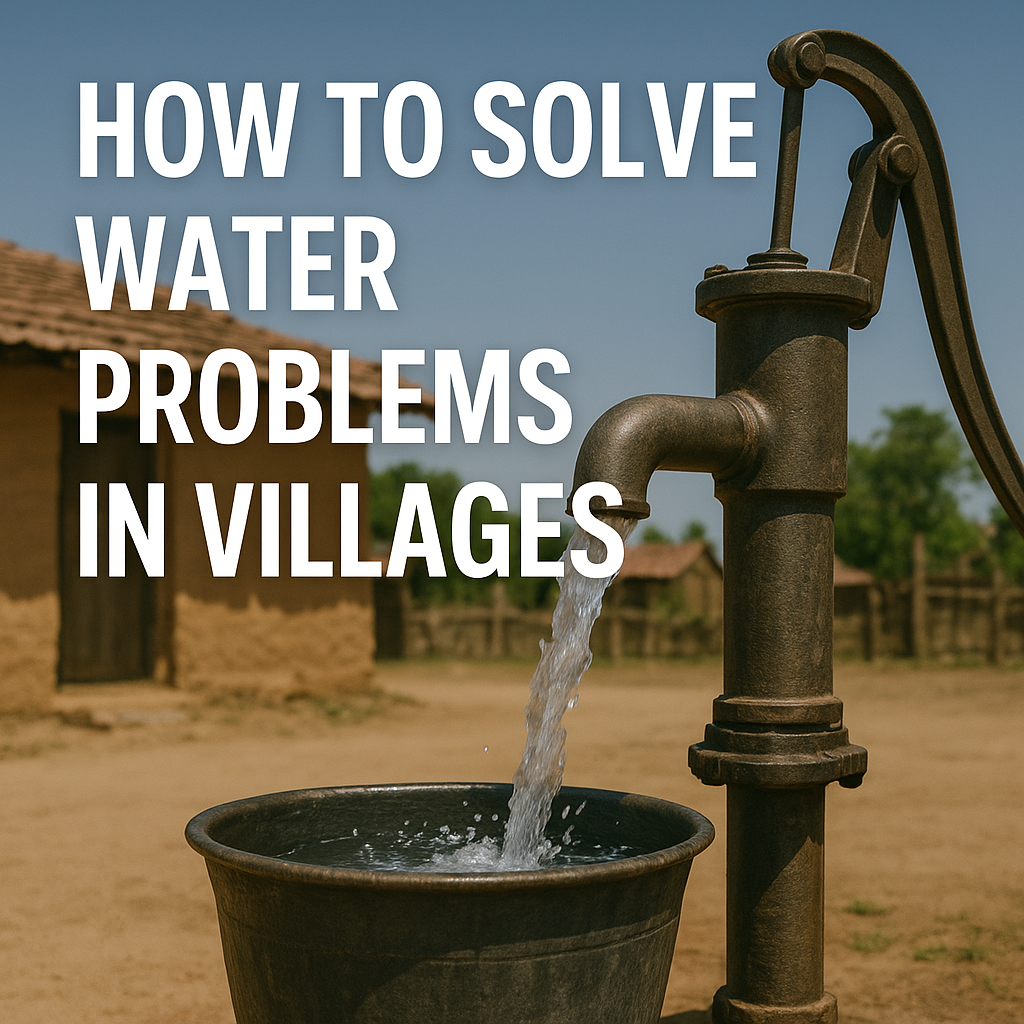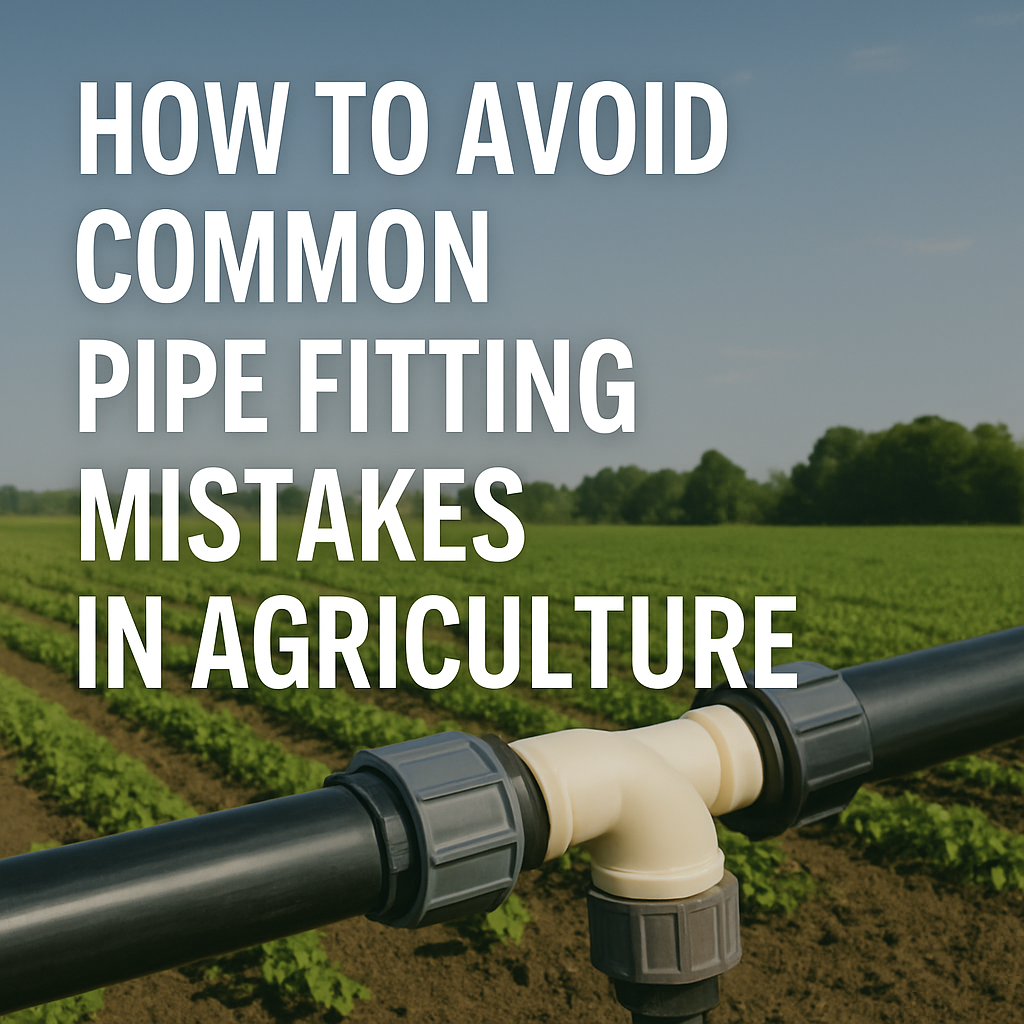How to Choose the Right Pipe for Your Farm Irrigation System

Strong 8k brings an ultra-HD IPTV experience to your living room and your pocket.
Selecting the right pipe for your farm irrigation system is one of the most critical decisions you can make to ensure efficient water usage, crop health, and cost-effectiveness. Irrigation pipes are the backbone of any agricultural setup. With the right type of pipe, you can optimize water flow, minimize leaks, and increase the longevity of your system. But with so many materials available— oriplast PVC, CPVC, HDPE, LDPE, and more—how do you make the right choice?
Let’s break down the key factors to help you choose the most suitable pipe for your irrigation needs.
1. Understand Your Farm’s Irrigation Requirements
Before you start shopping for pipes, assess your farm’s specific irrigation needs. Consider:
- Size of your farm: A larger area might require high-pressure systems and longer pipe runs.
Type of crops: Some crops need frequent watering, while others can thrive on less frequent irrigation
- Water source and pressure: Whether you’re using a borewell, river, or reservoir will affect your pipe material and diameter choices.
- Soil type and terrain: Slopes, rocky terrain, or sandy soils can influence pipe selection.
Understanding these variables will guide you in determining the right pipe diameter, pressure rating, and material.
2. Compare Common Irrigation Pipe Materials
Here’s a comparison of the most commonly used irrigation pipes:
. PVC (Polyvinyl Chloride) Pipes**
. Durable, lightweight, and corrosion-resistant.
- Suitable for underground systems.
Works well with moderate pressure.
Limited resistance to high heat or UV exposure.
CPVC Pipes (Chlorinated Polyvinyl Chloride)**
Stronger and more heat-resistant than standard PVC**.
Ideal for hot climates or systems where temperature may vary.
Excellent corrosion and chemical resistance.
- cpvc pipesare gaining popularity in agricultural irrigation systems due to their durability and reliabilit c. **HDPE (High-Density Polyethylene) Pipes**
Flexible and highly resistant to impact.
Best for above-ground and mobile systems.
UV-resistant and ideal for undulating terrain.
Typically more expensive than oriplast PVC/CPVC. LDPE (Low-Density Polyethylene) Pipes** Commonly used for drip and micro-irrigation. Lightweight and easy to install. Ideal for low-pressure systems.
Typically more expensive than PVC/CPVC.
LDPE (Low-Density Polyethylene) Pipes
Commonly used for drip and micro-irrigation.
Lightweight and easy to install.
Ideal for low-pressure systems.
3. Consider the Pipe Diameter
Choosing the right diameter is essential for maintaining consistent water flow and pressure. If the pipe is too narrow, it can reduce water delivery and cause pressure loss. If it’s too wide, you may overspend unnecessarily.
Use a flow rate and pressure chart or consult an irrigation expert to determine the appropriate pipe diameter based on your water source and distance.
4.Check for UV and Weather Resistance
If you plan to use your irrigation pipes above ground, they must withstand prolonged sun exposure and changing weather conditions.
cpvc pipes for example, are well-known for their ability to handle temperature extremes and UV rays better than many standard PVC options. This makes them ideal for exposed irrigation lines in hot and sunny regions.
5. Assess Chemical Resistance
If you plan to inject fertilizers or pesticides into your irrigation system, pipe material compatibility with chemicals is crucial. Not all pipes can handle chemical exposure without degrading.
CPVC stands out here as it has excellent chemical resistance, ensuring longevity even when used with fertigation or chemigation systems.
6. Think About Installation and Maintenance.
Ease of installation can save time and labor costs. Materials like cpvc pipes are relatively easy to cut, join, and install, even in field conditions. Also, consider whether the pipe system allows for easy maintenance or replacement of parts.
Look for systems that support modular fittings, valves, and connectors for better flexibility and repairability.
7. Budget and Long-Term Cost Efficiency
While cost is always a factor, the cheapest option upfront is not always the most economical in the long run. Cheaper pipes may wear out faster, need frequent repairs, or be less efficient at delivering water. Investing in high-quality materials like **cpvc pipes** might have a higher initial cost but often proves more cost-effective due to durability and reduced maintenance.
8. Compliance with Agricultural Standards
Ensure that your chosen pipe material is compliant with agricultural or irrigation standards in your region. This guarantees safety, performance, and compatibility with irrigation components like pumps and valves.
Reputable cpvcpipe manufacturers typically meet industry certifications and can provide documentation on pressure ratings and material composition.
Final Thoughts
Choosing the right pipe for your farm irrigation system is about balancing efficiency, durability, and cost. With growing awareness around water conservation and sustainable agriculture, selecting pipes that minimize leakage, withstand tough field conditions, and support efficient water distribution is more important than ever.
CPVC pipes in particular, offer a reliable and versatile solution for modern irrigation systems. Whether you’re managing a small vegetable patch or a large-scale agricultural field, investing in the right piping system will ensure your crops receive optimal hydration, leading to healthier yields and reduced water wastage.
When in doubt, consult with local agricultural suppliers or irrigation experts to tailor a system best suited to your land and crops. The right pipe today can lead to a more productive farm tomorrow.
Note: IndiBlogHub features both user-submitted and editorial content. We do not verify third-party contributions. Read our Disclaimer and Privacy Policyfor details.




